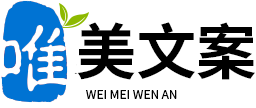英语模板作文
The Importance of Optimizing Web Content for Search Engines
In today's digital age, having a strong online presence is crucial for businesses and individuals alike. One of the key factors in achieving this is optimizing web content for search engines. By doing so, websites can improve their rankings on search engine results pages (SERPs) and attract more organic traffic. In this article, we will explore the significance of optimizing web content for search engines and provide some tips on how to do it effectively.
First and foremost, optimizing web content for search engines enhances visibility. When users search for specific keywords or phrases related to a website's content, search engines scan through countless web pages to provide the most relevant results. By implementing appropriate search engine optimization (SEO) techniques, websites can increase their chances of appearing higher on SERPs. This increased visibility leads to more exposure and, subsequently, more potential visitors.
Moreover, optimizing web content for search engines improves user experience. SEO practices such as using relevant keywords, creating engaging meta descriptions, and organizing content with headings and subheadings can make websites more user-friendly. When users find relevant and well-structured content on a website, they are more likely to stay longer, explore other pages, and potentially convert into customers or loyal followers. Thus, SEO not only helps search engines understand the content but also enhances the overall user experience.
Additionally, optimizing web content for search engines contributes to credibility and authority. When a website consistently appears on the first page of search results, it is perceived as trustworthy and reliable. Users tend to associate higher rankings with higher quality. By implementing SEO strategies, websites can demonstrate their expertise and build credibility within their respective industries. This, in turn, can lead to more conversions, higher customer satisfaction, and ultimately, increased success.
To optimize web content effectively, it is important to conduct keyword research and identify the most relevant and high-demand keywords for a particular topic. These keywords should be strategically placed throughout the content, including in titles, headings, and meta descriptions. However, it is essential to avoid keyword stuffing, as it can lead to penalties from search engines. Instead, focus on creating valuable, informative, and engaging content that naturally incorporates the identified keywords.
Furthermore, it is crucial to optimize website loading speed, as search engines prioritize websites that offer fast and seamless user experiences. Compressing images, minimizing code, and utilizing caching techniques are some ways to enhance loading speed. Additionally, ensuring mobile responsiveness is vital, as an increasing number of users access the internet through mobile devices.
In conclusion, optimizing web content for search engines is essential for improving visibility, enhancing user experience, and establishing credibility. By implementing effective SEO techniques, websites can attract more organic traffic, increase conversions, and achieve long-term success. Remember to conduct keyword research, create valuable content, optimize loading speed, and prioritize mobile responsiveness. With these strategies in place, websites can effectively optimize their web content and thrive in the digital landscape.
